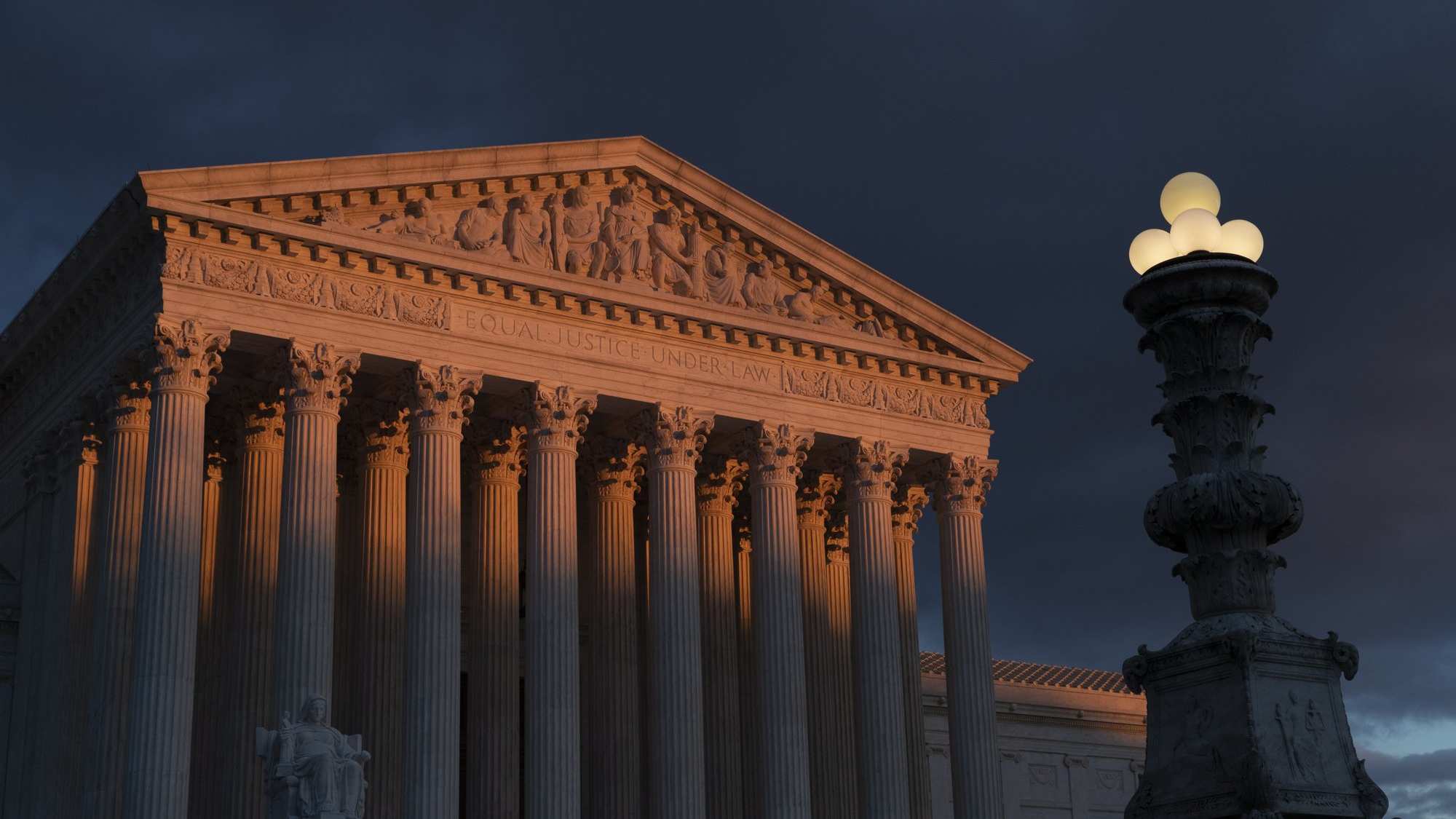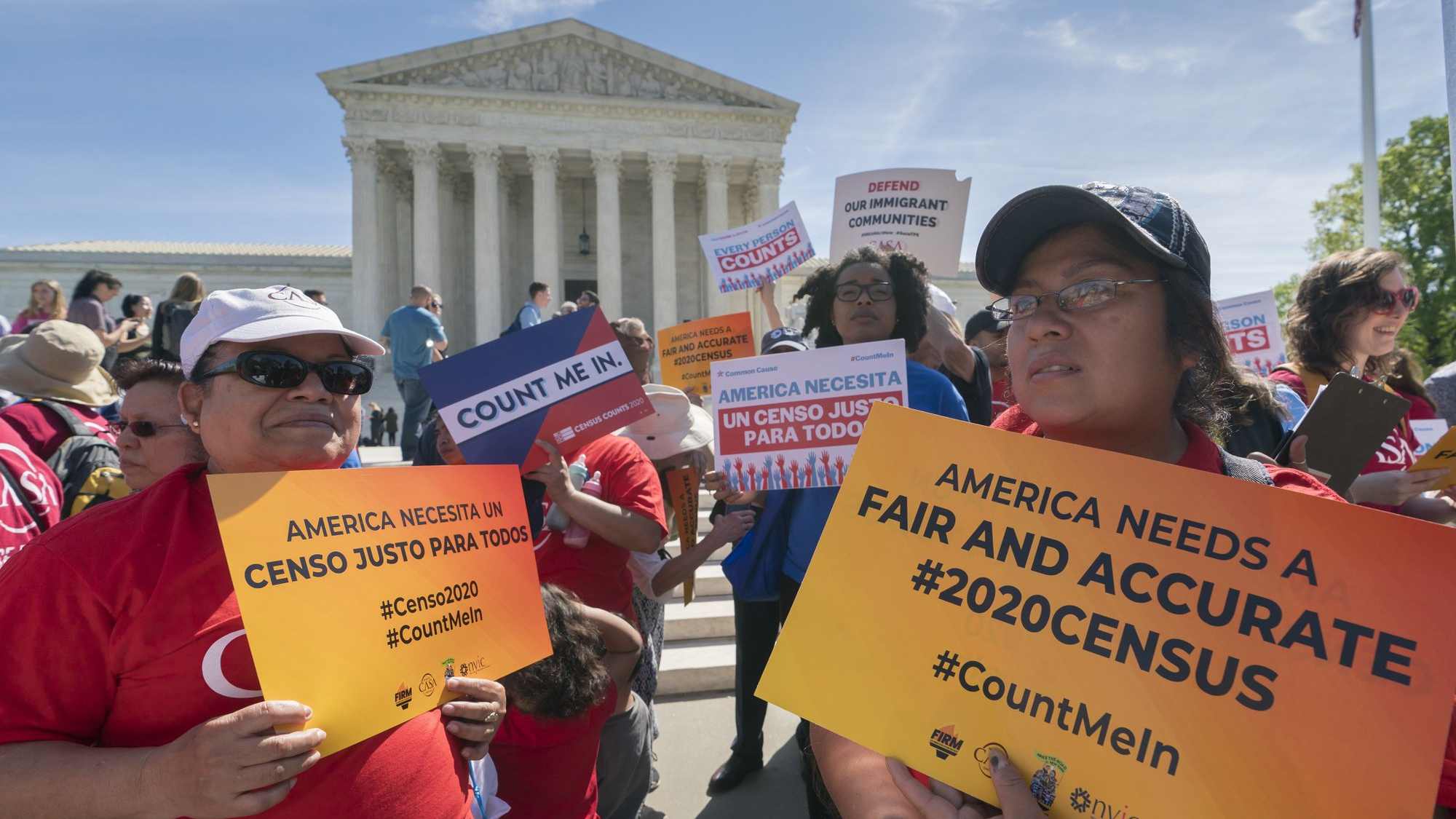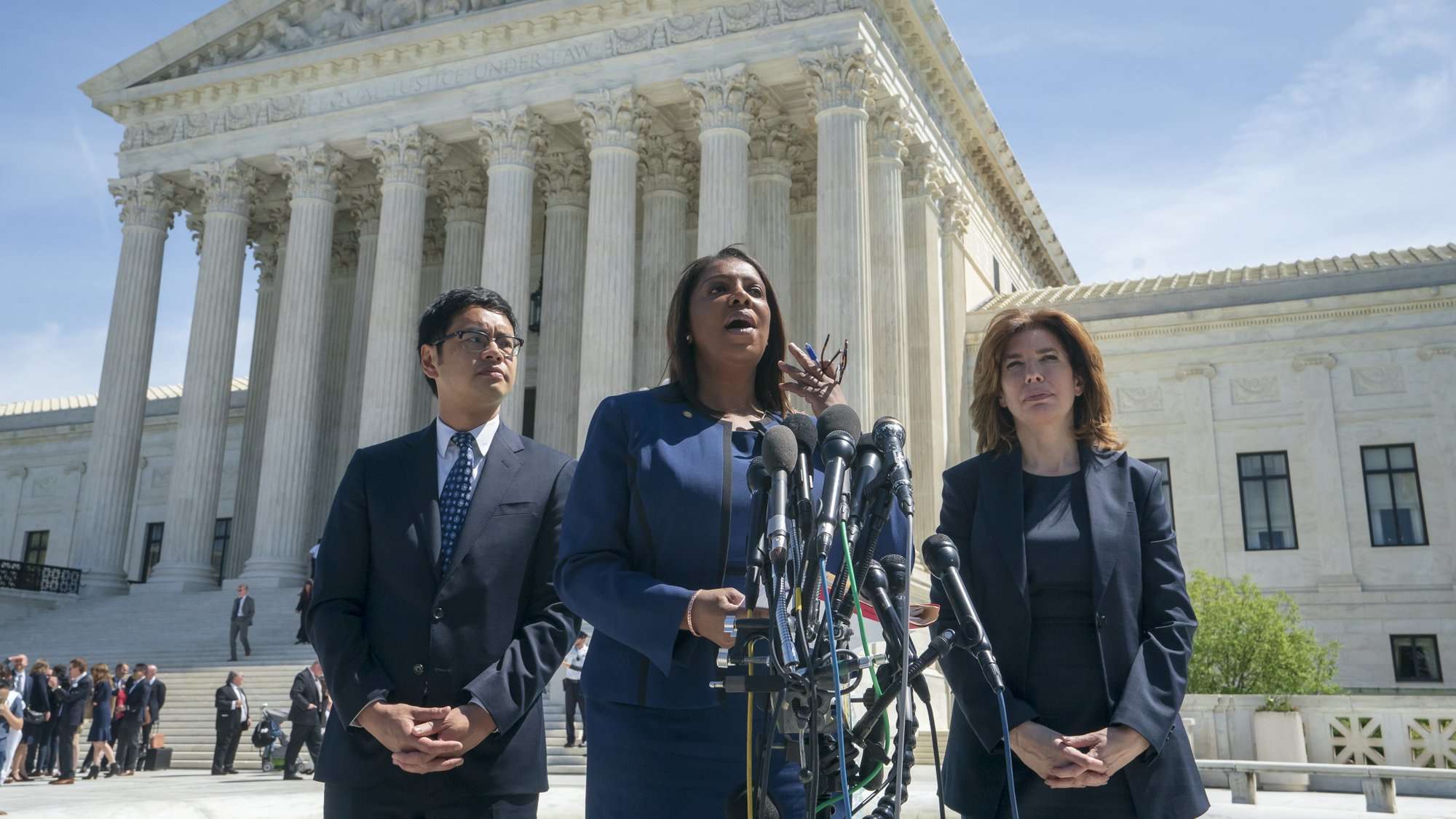
North America
14:33, 24-Apr-2019
U.S. Justices deliberates on asking about citizenship status in 2020 census
Owen Fairclough

The U.S. Supreme Court is deciding whether the government can ask people if they are U.S. citizens in next year's census.
Reintroducing the question, which hasn't been used since 1950, has pitted the Trump administration against civil rights groups, which claim that the information will target immigrants.
Protesters are outside the U.S. Supreme Court as it wrestles with a critical question: can the U.S. government include a question about respondents' citizenship in next year's census?
They believe it'll deter people from predominantly Hispanic countries who aren't U.S. citizens from taking part.
Maritza Solano, Director of Education at immigrant advocacy group CASA, said: "We already know that after the Trump administration came in there was fear among people that if they shared their status and made themselves counted they would be persecuted."

Immigration activists rally outside the Supreme Court as the justices hear arguments over the Trump administration's plan to ask about citizenship on the 2020 census, Washington, DC, April 23, 2019. /AP
Immigration activists rally outside the Supreme Court as the justices hear arguments over the Trump administration's plan to ask about citizenship on the 2020 census, Washington, DC, April 23, 2019. /AP
The Trump administration claims the opposite, saying that it wants the information to enforce voting laws aimed at preventing discrimination.
But the Census Bureau says it can do that by including administrative data and has concluded that the citizenship question could lead to an undercount by millions.
So far, three lower courts in the U.S. have denied the plan to ask every U.S. resident about their citizenship in the census. And two of the three judges also ruled that asking if people are citizens would violate the provision of the Constitution.
However, the administration argues that the citizenship question is plainly constitutional because it has been asked on many past censuses and continues to be used on smaller, annual population surveys.
Gorsuch, also a Trump appointee, also noted that many other countries include citizenship questions on their censuses.

New York State Attorney General Letitia James(C) speaks to reporters after the Supreme Court heard arguments over the Trump administration's plan to ask about citizenship on the 2020 census, Washington, DC, April 23, 2019. /AP Photo
New York State Attorney General Letitia James(C) speaks to reporters after the Supreme Court heard arguments over the Trump administration's plan to ask about citizenship on the 2020 census, Washington, DC, April 23, 2019. /AP Photo
The issue is further complicated because the bureau's annual American Community Survey, sampling only around 3.5 million households rather than a full count, already contains a citizenship question.
The once-every-10 years census is critical for the U.S. government, which is used to determine some 800 billion dollars of federal spending and political representation in Congress.
And those in favor of a citizenship question say the accuracy of the information is also critical.
"We're engaged in a very vigorous debate in this country about our immigration policy," said Hans von Spakovsky, Senior Legal Fellow at the The Heritage Foundation.
The Supreme Court, whose justices include two Trump appointees, is expected to issue its ruling by the end of June.
(Cover image: The Supreme Court is seen at sunset, Washington, DC, April 23, 2019. /AP Photo)

SITEMAP
Copyright © 2018 CGTN. Beijing ICP prepared NO.16065310-3
Copyright © 2018 CGTN. Beijing ICP prepared NO.16065310-3